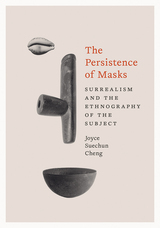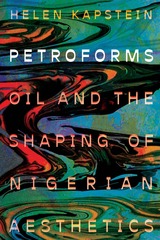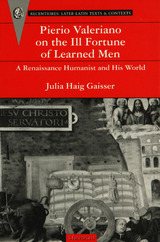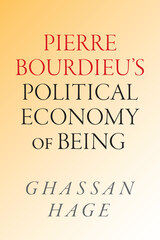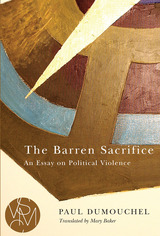
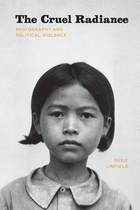

Mahatma Gandhi and Jawaharlal Nehru helped create the myth of a nonviolent ancient India while building a modern independence movement on the principle of nonviolence (ahimsa). But this myth obscures a troubled and complex heritage: a long struggle to reconcile the ethics of nonviolence with the need to use violence to rule. Upinder Singh documents the dynamic tension between violence and nonviolence in ancient Indian political thought and practice over twelve hundred years.
Political Violence in Ancient India looks at representations of kingship and political violence in epics, religious texts, political treatises, plays, poems, inscriptions, and art from 600 BCE to 600 CE. As kings controlled their realms, fought battles, and meted out justice, intellectuals debated the boundary between the force required to sustain power and the excess that led to tyranny and oppression. Duty (dharma) and renunciation were important in this discussion, as were punishment, war, forest tribes, and the royal hunt. Singh reveals a range of perspectives that defy rigid religious categorization. Buddhists, Jainas, and even the pacifist Maurya emperor Ashoka recognized that absolute nonviolence was impossible for kings.
By 600 CE religious thinkers, political theorists, and poets had justified and aestheticized political violence to a great extent. Nevertheless, questions, doubt, and dissent remained. These debates are as important for understanding political ideas in the ancient world as for thinking about the problem of political violence in our own time.

Based on work the author has carried out with survivor groups in Northern Ireland and South Africa, Recording Memories from Political Violence draws on written and audiovisual texts to describe and analyze the use of documentary filmmaking in recording experiences of political conflict. A variety of issues relevant to the genre are addressed at length, including the importance of ethics in the collaboration between the filmmaker and the participant and the effect of location on the accounts of participants. Cahal McLaughlin draws on the diverse fields of film and cultural studies, as well as nearly twenty years of production experience, in this informed and instructive contribution to documentary filmmaking and post-conflict studies.
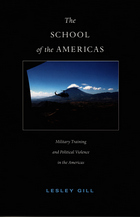
Based on her unprecedented level of access to the School of the Americas, Gill describes the School’s mission and training methods and reveals how its students, alumni, and officers perceive themselves in relation to the dirty wars that have raged across Latin America. Assessing the School’s role in U.S. empire-building, she shows how Latin America’s brightest and most ambitious military officers are indoctrinated into a stark good-versus-evil worldview, seduced by consumer society and the “American dream,” and enlisted as proxies in Washington’s war against drugs and “subversion.”

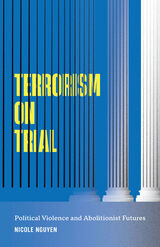
A landmark sociological examination of terrorism prosecution in United States courts
Rather than functioning as a final arbiter of justice, U.S. domestic courts are increasingly seen as counterterrorism tools that can incapacitate terrorists, maintain national security operations domestically, and produce certain narratives of conflict. Terrorism on Trial examines the contemporary role that these courts play in the global war on terror and their use as a weapon of war: hunting, criminalizing, and punishing entire communities in the name of national security.
Nicole Nguyen advocates for a rethinking of popular understandings of political violence and its root causes, encouraging readers to consider anti-imperial abolitionist alternatives to the criminalization, prosecution, and incarceration of individuals marked as real or perceived terrorists. She exposes how dominant academic discourses, geographical imaginations, and social processes have shaped terrorism prosecutions, as well as how our fundamental misunderstanding of terrorism has led to punitive responses that do little to address the true sources of violence, such as military interventions, colonial occupations, and tyrannical regimes. Nguyen also explores how these criminal proceedings bear on the lives of defendants and families, seeking to understand how legal processes unevenly criminalize and disempower communities of color.
A retheorization of terrorism as political violence, Terrorism on Trial invites readers to carefully consider the role of power and politics in the making of armed resistance, addressing the root causes of political violence, with a goal of building toward a less violent and more liberatory world.
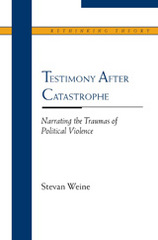
A deeply involving, compassionate, occasionally confrontational blend of practical hands-on experience and dialogic theory, emerging from the author's decade-long work in Europe and Chicago with survivors of the Balkan wars, this book is committed to the proposition that efforts to use testimony to address the consequences of political violence can be strengthened--though by no means guaranteed--if they are based on a fuller acknowledgment of the personal and ethical elements embodied in the narrative essence of testimony. These elements are what Testimony after Catastrophe seeks to reveal.
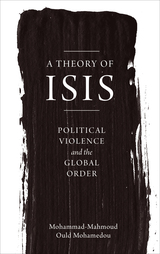
Against these established narratives, Mohammad-Mahmoud Ould Mohamedou now presents his new theory of ISIS. Tracing the genealogy of ISIS and documenting its evolution in Iraq and Syria, he argues that ISIS has actually transcended Osama Bin Laden’s original scheme of Al Qaeda, mutating into a unprecedented hybrid between postcolonial violence, postmodernity, and postglobalization. A Theory of ISIS offers an original take on the militant group. Mohamedou explains the proliferation of terrorist attacks on the West and deepens our understanding of the group's impact on the very nature of contemporary political violence.
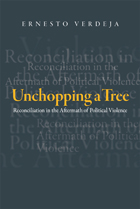
Employing a normative theory of reconciliation that differs from prevailing approaches, Verdeja outlines a concept that emphasizes the importance of shared notions of moral respect and tolerance among adversaries in transitional societies. Drawing heavily from cases such as reconciliation efforts in Latin America and Africa—and interviews with people involved in such efforts—Verdeja debates how best to envision reconciliation while remaining realistic about the very significant practical obstacles such efforts face
Unchopping a Tree addresses the core concept of respect across four different social levels—political, institutional, civil society, and interpersonal—to explain the promise and challenges to securing reconciliation and broader social regeneration.

What is driving political extremism in Pakistan? In early 2011, the prominent Pakistani politician Salmaan Taseer was assassinated by a member of his own security team for insulting Islam by expressing views in support of the rights of women and religious minorities. Benazir Bhutto, the former prime minister, was killed by gunfire and explosive devices as she left a campaign event in December 2007; strong evidence links members of extremist organizations to her slaying.
These murders underscore the fact that religion, politics, and policy are inextricably linked in Pakistan. In this book, Haroon K. Ullah analyzes the origins, ideologies, bases of support, and electoral successes of the largest and most influential Islamic parties in Pakistan. Based on his extensive field work in Pakistan, he develops a new typology for understanding and comparing the discourses put forth by these parties in order to assess what drives them and what separates the moderate from the extreme. A better understanding of the range of parties is critical for knowing how the US and other Western nations can engage states where Islamic political parties hold both political and moral authority.
Pakistan’s current democratic transition will hinge on how well Islamic parties contribute to civilian rule, shun violence, and mobilize support for political reform. Ullah’s political-party typology may also shed light on the politics of other majority-Muslim democracies, such as Egypt and Tunisia, where Islamist political parties have recently won elections.

More than a description of this particular event, however, Who Killed John Clayton? traces patterns of political violence in this section of the South over a three-decade period. Using vivid courtroom-type detail, Barnes describes how violence was used to define and control the political system in the post-Reconstruction South and how this system in turn produced Jim Crow. Although white Unionists and freed blacks had joined under the banner of the Republican Party and gained the upper hand during Reconstruction, during these last decades of the nineteenth century conservative elites, first organized as the Ku Klux Klan and then as the revived Democratic Party, regained power—via such tactics as murdering political opponents, lynching blacks, and defrauding elections.
This important recounting of the struggle over political power will engage those interested in Southern and American history.
READERS
Browse our collection.
PUBLISHERS
See BiblioVault's publisher services.
STUDENT SERVICES
Files for college accessibility offices.
UChicago Accessibility Resources
home | accessibility | search | about | contact us
BiblioVault ® 2001 - 2025
The University of Chicago Press


